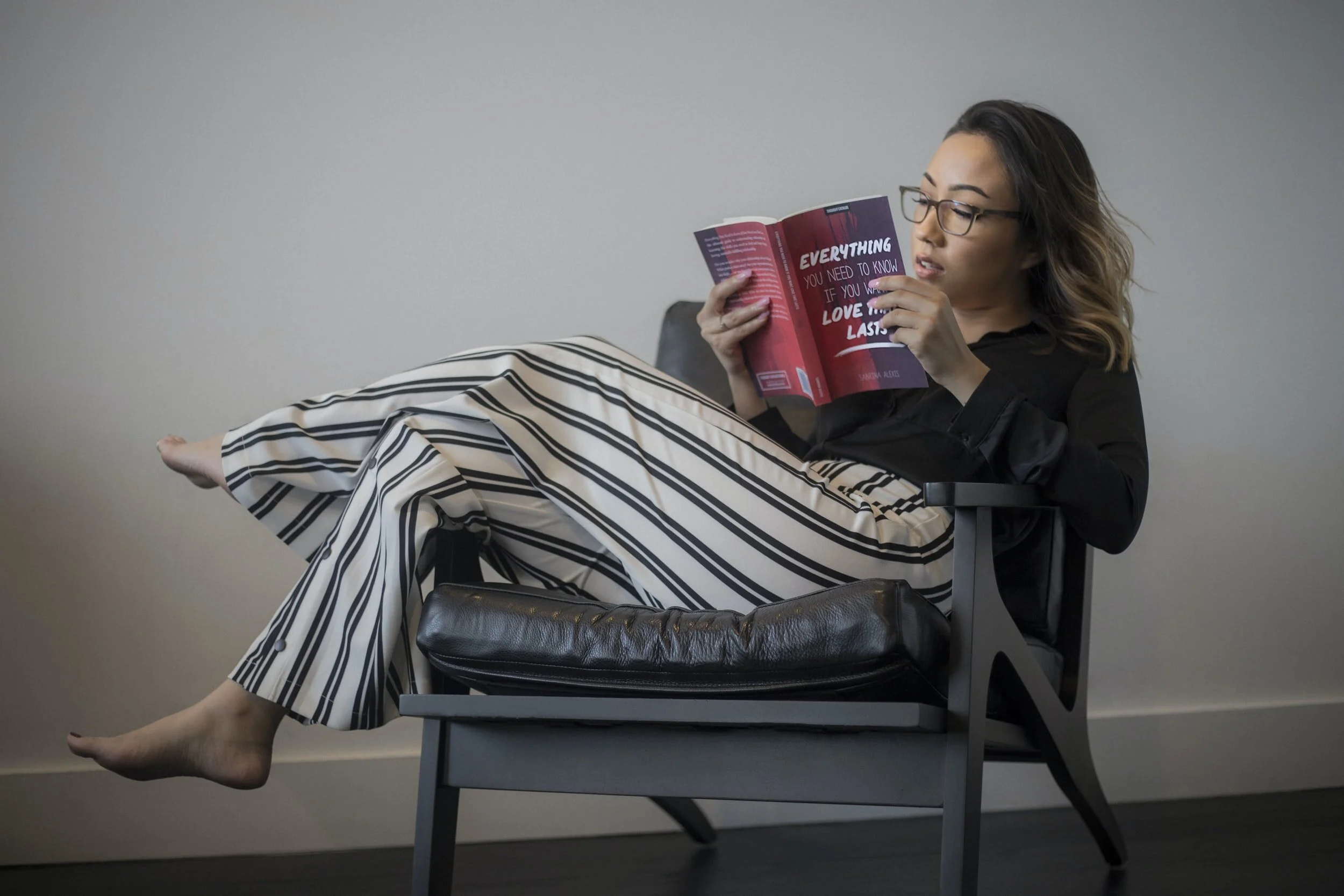The Problem With Self-Help For Women
I pre-ordered Untamed by Glennon Doyle. It had me crying by page 5. I had to continually stop reading through the book to journal about my own experiences.
It got to me so much that I had to discuss it with other women and either hosted or participated in three discussions on the book with completely different groups of people in less than a month.
So it's safe to say I'm an Untamed mega-fan.
I loved Glennon's story of how meeting Abby Wambach led her towards breaking the rules she'd been handed and creating her own, untamed approach to life.
And then I heard Glennon on Brené Brown's Unlocking Us podcast where they both talked about setting boundaries with their own parents on behalf their children.
My mind started to churn...
I thought back to all the articles and self-help books I'd read, all the podcasts geared towards women I'd listened to -- and how many of them had one thing in common:
The turning point in a woman's life hinged on falling in love or, even more so, having children.
This realization made me MAD. On a deep, deep level.
I mean, if even Glennon Doyle, the patron saint of women's empowerment, only started living her own empowered life because she fell in love and had children, where does that leave those of us who are single or don't have children?
She seemed to get untamed by still doing what is traditionally expected by a woman, albeit by doing it in a completely non-traditional way.
This frustrated me so much, I even thought for awhile that my next book would specifically be for single, childless women to own their life on behalf of them and them alone.
But then I realized this is not just about single, childless women.
THIS IS A PROBLEM FOR ALL WOMEN EVERYWHERE.
Because this really has nothing to do with falling in love or having children.
This is about women being taught the only reason it's okay to do anything is to do so ON BEHALF OF SOMEONE ELSE.
We're taught that it's wonderful to advocate for another person -- but self-centered and selfish to advocate for ourselves.
We're taught to say no for our team, children, spouses, even friends -- but not just for you.
We push our girls to go after their dreams -- but feel arrogant when stepping into a bigger space ourselves.
This needs to change.
You get to set a boundary simply because it's what you need for your wellbeing.
You get to negotiate on behalf of yourself JUST FOR YOU.
You get to say no because you don't want to do the thing. Or because your plate is already overflowing. Or whatever other reason is true for you.
You get to put yourself out into the world in whatever way you choose, whether that's living a private, quiet life or running for president (because we still need a non-male one of those 🙂) - or anything in between.
I don't want to make it sound like this is easy. It's really, really hard. I feel it ALL THE TIME.
There's discomfort that comes from putting myself into the world as I am just because that's who I am. Complete in my fullness, radiance, and worth.
I got uncomfortable even publishing this blog, wondering if I was coming across as too direct or positioning myself as someone who has all the answers (which I definitely don't).
I HATE that it's uncomfortable.
It's annoys the bejesus out of me that I even feel this way.
But I do. I know it's not my fault that I feel this way. I know it's because of the messages I've gotten since the day I was born until this very moment.
And I also know it's my responsibility to choose whether to act on the discomfort -- or act on the way I want to live my life.
I get to choose. Everyday.
And so do you.
It's your choice. Just for you.
Heather Whelpley is a speaker, coach, and author that guides women to let go of proving, pleasing, and perfecting and create their own rules for life. In 2020 she published her first book, An Overachiever’s Guide To Breaking The Rules: How To Let Go Of Perfect and Live Your Truth.

